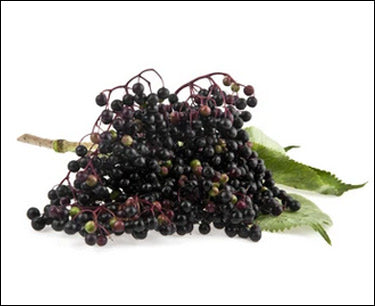
Elderberry Soothes Common Allergy Symptoms
Elderberry is a European folk remedy typically used for supporting health during bouts of the cold and flu. However, there is evidence that the active ingredients in elderberry also support the sinuses by discouraging swelling of the mucous membranes. This benefit makes elderberry an excellent tool for supporting health while combating seasonal allergy symptoms. It naturally protects defenses by keeping bacteria in check, and it has also been used to deter sinusitis and nasal congestion.
Elderberries contain organic pigments, tannin, amino acids, carotenoids, flavonoids, sugar, rutin, viburnic acid,vitaman A and B and a large amount of vitamin C. They are also mildly laxative, a diuretic, and diaphoretic. Flavonoids, including quercetin, are believed to account for the therapeutic actions of the elderberry flowers and berries. According to test tube studies these flavonoids include anthocyanins that are powerful antioxidants and protect cells against damage.
Extensive research confirms that the most powerful antioxidant berries are those that contain a class of polyphenols known as anthocyanins. These nutrients create the deep red, blue, and purple pigments found in plants such as blueberries, elderberries, blackberries, and açaí. Berry anthocyanins strongly combat oxidative stress, a causative factor in the pathogenesis of many major diseases1 such as Parkinson’s disease,9 Alzheimer’s disease, amyotrophic lateral sclerosis (ALS), cancer, and allergic disorders.